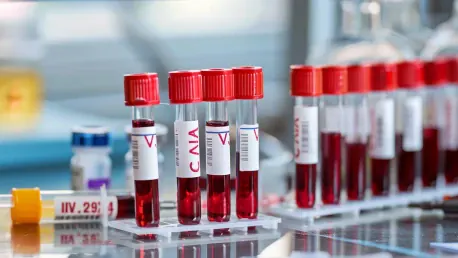Theratechnologies, a Quebec-based biopharmaceutical company, is currently navigating challenging waters as it faces potential disruptions in the supply of its crucial HIV medication, Egrifta SV. This drug is widely used to reduce excess abdominal fat in HIV patients suffering from lipodystrophy. The looming supply issue arises from an unexpected, voluntary shutdown of a contract manufacturer’s facility following a disappointing FDA inspection. While it’s important to note that the facility shutdown is not directly related to the production of Egrifta SV, it nonetheless casts a shadow over the manufacturing environment essential for the drug’s production.
In light of these circumstances, Theratechnologies is maintaining an optimistic outlook and is proactively working towards minimizing the potential impact on patients by 2025. The company is engaging in close collaboration with both its manufacturer and the FDA to navigate through the regulatory landscape and resume production activities as soon as possible. To address the immediate crisis, the company is implementing stringent inventory management measures. However, these measures come with an anticipated fiscal repercussion, expected to affect the company’s 2024 revenue by approximately $1.6 million.
Collaboration and Remediation Efforts
The contract manufacturer at the center of this disruption is in the process of finalizing remediation measures and has set a target to restart production by mid-October. A critical batch of Egrifta SV is scheduled to be produced on October 21, which marks a significant milestone in the efforts to resolve the supply issue. Nonetheless, Theratechnologies has chosen not to disclose the identity of the contract manufacturer responsible for this disruption, maintaining a level of confidentiality in its communications.
Theratechnologies’ dependency on a limited number of suppliers adds another layer of complexity to the situation. Specifically, the company relies solely on Bachem and Jubilant for the raw materials, drug substance, and drug product necessary for Egrifta SV. This narrow pool of qualified manufacturers is a double-edged sword. While these relationships ensure consistency and quality, they also make the company particularly vulnerable to disruptions. Replacing third-party manufacturers is neither a quick nor an inexpensive endeavor, often taking between two to three years to find and qualify new suppliers.
Industry-Wide Vulnerabilities
The current supply disruption underscores a broader vulnerability within the biopharmaceutical industry, highlighting the risks associated with relying on a small group of contract manufacturers. This issue is not isolated to Theratechnologies; it resonates across the industry as seen in a recent case involving Coherus’ Neulasta biosimilar, Udenyca. Coherus faced similar supply chain disruptions due to over-commitments and capacity constraints at its U.S.-based contract manufacturer. These episodes reveal how supply chain stability remains a chronic challenge for pharmaceutical firms, posing risks not only to company revenues but also to patient access to essential medications.
Given this backdrop, Theratechnologies’ proactive measures are crucial. By closely managing inventory and working with regulatory bodies, they aim to mitigate patient impact. Yet, these measures are only stopgaps, highlighting the need for a more robust and resilient manufacturing and supply chain strategy. The lessons learned here press home the importance of having diversified manufacturing alliances to cushion against such disruptions in the future. It’s a moment of reckoning for the industry to invest in strengthening its supply chain frameworks to avert similar crises.
Conclusion
Theratechnologies, a pharmaceutical company from Quebec, is facing challenges with the supply of its key HIV drug, Egrifta SV. This medication is essential for reducing excess abdominal fat in HIV patients suffering from lipodystrophy. The supply issue stems from the unexpected, voluntary shutdown of a contract manufacturer’s facility after it failed an FDA inspection. Although the shutdown did not specifically involve Egrifta SV, it affects the production environment critical for the drug’s manufacturing.
Despite these hurdles, Theratechnologies remains hopeful and is taking proactive steps to reduce the potential impact on patients by 2025. The company is working closely with both the manufacturer and the FDA to navigate the regulatory landscape and resume production as swiftly as possible. To tackle the immediate crisis, Theratechnologies is implementing strict inventory management measures. However, these precautions have financial implications, with an expected hit to the company’s 2024 revenue by around $1.6 million. The company’s commitment to patient care remains unwavering as it navigates this complex challenge.









